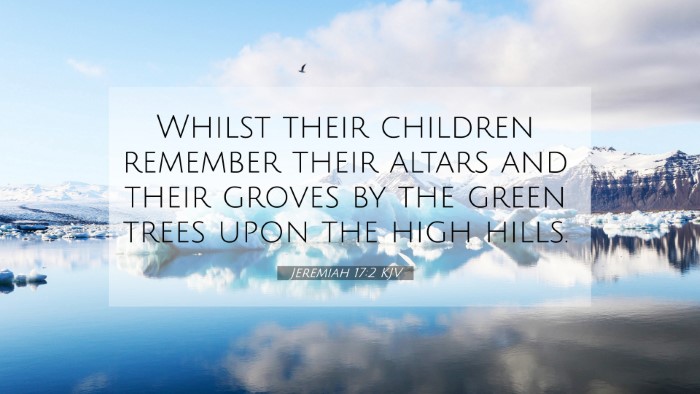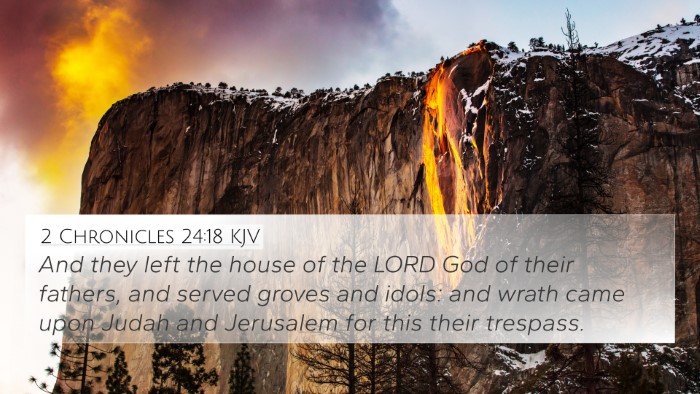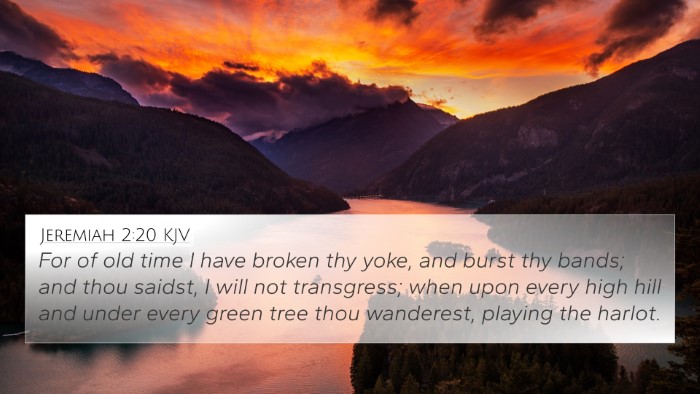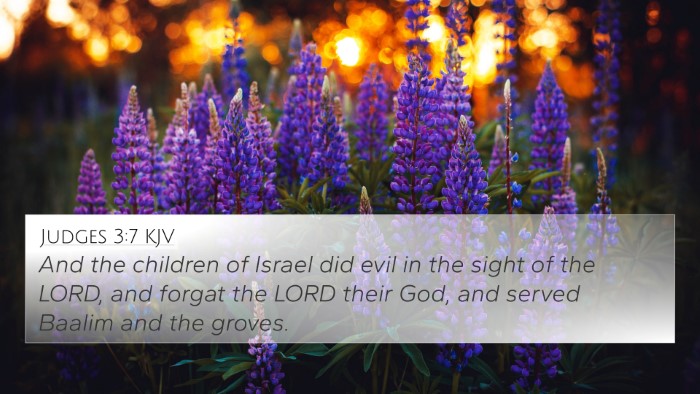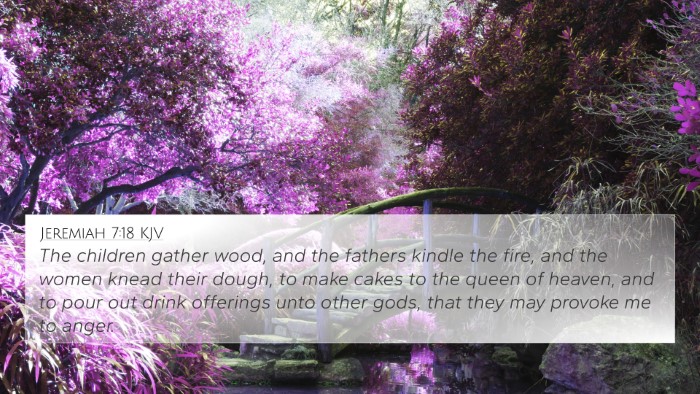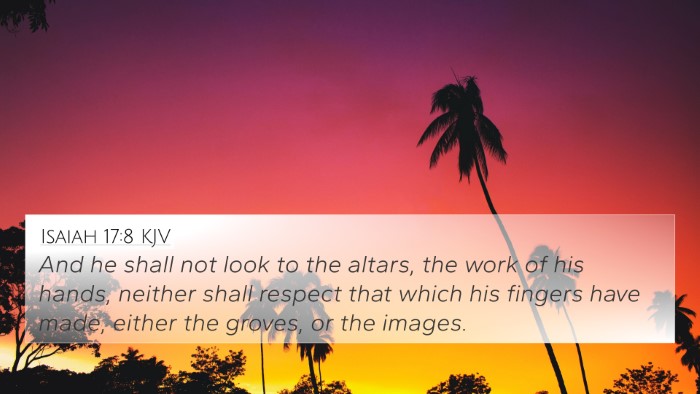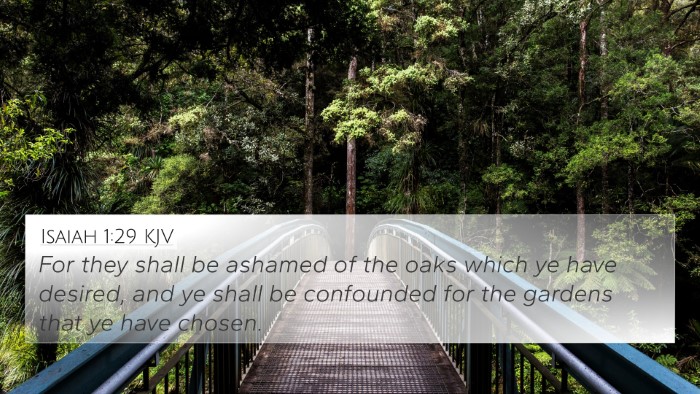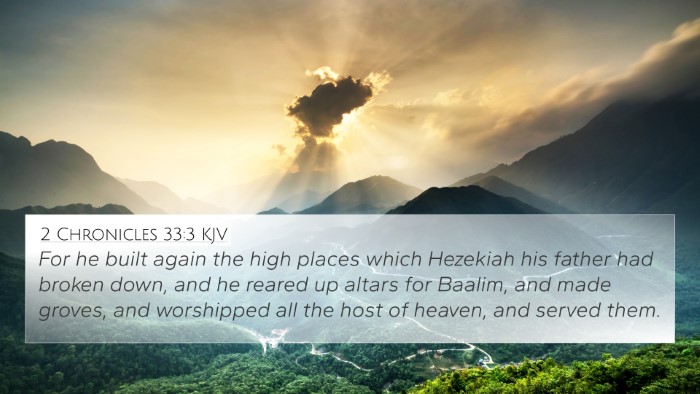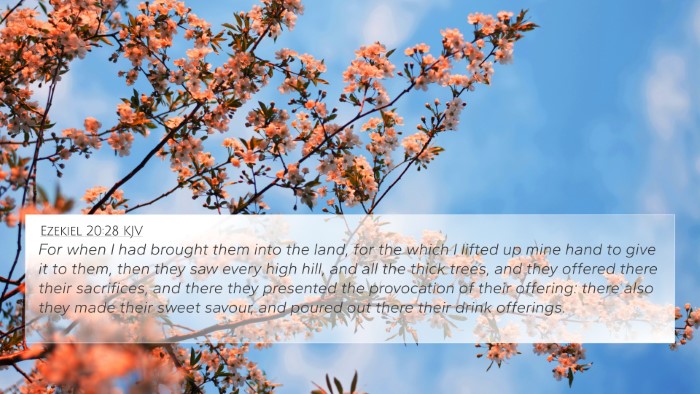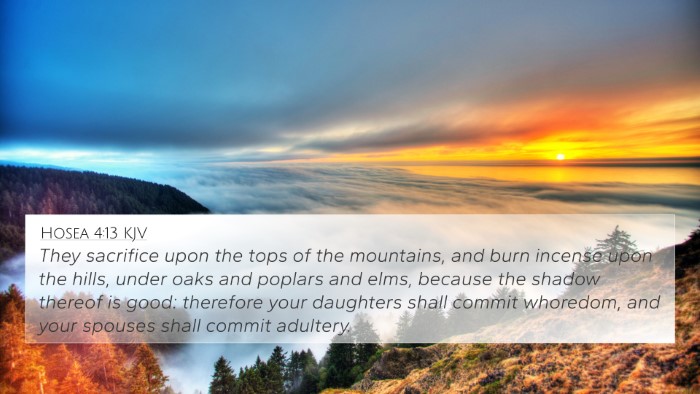Understanding Jeremiah 17:2
Jeremiah 17:2 reads: "Whilst their children remember their altars and their groves by the green trees upon the high hills." This verse encapsulates the themes of idolatry and the consequences of the people's forgetfulness of God amidst the allure of foreign worship practices.
Verse Context and Meaning
This verse is set within a broader context where God, through the prophet Jeremiah, is lamenting the apostasy of His people. The children of Israel have turned away from Yahweh to worship idols, symbolized here by "altars" and "groves." The high hills and green trees often served as locations for pagan worship, thus signifying a turning away from true worship.
Insights from Commentaries
-
Matthew Henry:
Henry elucidates that the mention of altars and groves reflects the deep-rooted idolatry practiced by the children of Israel. He emphasizes the lamentation over how ingrained these practices were among them, leading to a spiritual decline.
-
Albert Barnes:
Barnes discusses how this verse speaks to a generational commitment to idolatry. The memories of their fathers' actions have not faded but have instead been passed down, instilling a cycle of sin and rebellion against God.
-
Adam Clarke:
Clarke notes that the "groves" and "high hills" symbolize both physical locations of sin and spiritual ascendancy. He suggests that these places were an affront to God, as they stood in stark contrast to the divinely ordained worship practices established for the Israelites.
Cross-Referenced Scriptures
Understanding Jeremiah 17:2 can be enriched by cross-referencing several related Bible verses:
- Deuteronomy 12:2-3: Discusses the destruction of pagan altars.
- 2 Kings 17:10-11: Describes the high places where Israel worshipped idols.
- Psalms 78:58: Speaks to God’s jealousy concerning idol worship.
- Isaiah 57:5: Mentions those who practice wickedness in "the high places."
- Jeremiah 2:20: Addresses Israel’s rebellion against God and their engagement with idolatry.
- Ezekiel 6:13: Describes the altars of foreign gods being desecrated.
- Romans 1:25: Introduces the idea of exchanging truth for lies in the context of worshiping created things.
Thematic Connections
This verse highlights major themes in the Bible, particularly the theme of idolatry and its dire consequences, making it a significant point of study for the following reasons:
- Idolatry: The ongoing struggle against false worship seen throughout both the Old and New Testaments.
- Generational Sin: The cycle of sin that passes from one generation to the next, emphasizing the importance of teaching children about God.
- Consequences of Disobedience: A continuous reminder of what happens when God's people stray from His commandments.
Using Cross-References for Deeper Understanding
For those studying Jeremiah 17:2, employing tools for Bible cross-referencing offers a way to gain deeper insights into the word of God. Here are some suggested methods:
- Bible Concordance: Utilize a concordance to find related verses that may elucidate themes in your study.
- Bible Cross-Reference Guides: Use comprehensive guides to see how themes connect across the text.
- Cross-Referencing Bible Study: Engage in discussions or personal study focused on connecting themes with other verses.
- Inter-Biblical Dialogue: Explore conversations between different books of the Bible, such as the links between the Prophets and the Apostles.
Conclusion
In studying Jeremiah 17:2, we observe not just a historical account, but an enduring principle of faithfulness to God amidst the distractions of the world. The ramifications of turning towards idolatry can be profound, a lesson that resonates throughout scripture. By exploring the connections between this verse and others, we gain a holistic view of Biblical themes that are as applicable today as they were in Jeremiah's time.


